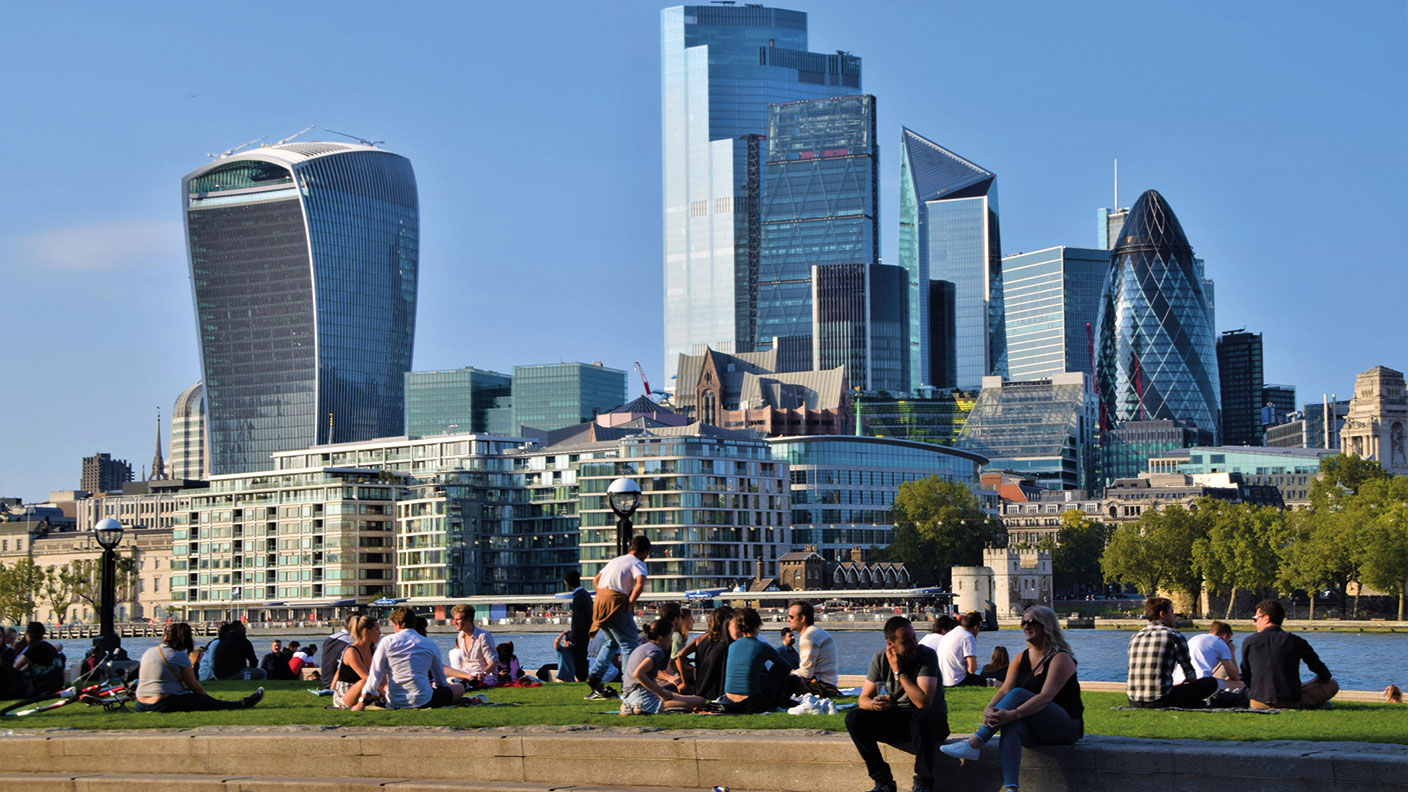Beware of investing in commercial property
With many companies are planning to adopt a “hybrid” working model once the pandemic is over, the market for office property is facing a reckoning.

Get the latest financial news, insights and expert analysis from our award-winning MoneyWeek team, to help you understand what really matters when it comes to your finances.
You are now subscribed
Your newsletter sign-up was successful
Want to add more newsletters?

Twice daily
MoneyWeek
Get the latest financial news, insights and expert analysis from our award-winning MoneyWeek team, to help you understand what really matters when it comes to your finances.

Four times a week
Look After My Bills
Sign up to our free money-saving newsletter, filled with the latest news and expert advice to help you find the best tips and deals for managing your bills. Start saving today!
The market for office property is facing a reckoning. Many companies are planning to adopt a “hybrid” working model once the pandemic is over, with weeks split between days in the office and days working from home. That means they will require less floorspace than before. A survey of Britain’s 258 biggest firms by PwC found that half have plans to “cut the size of their property portfolios”, says The Times. Planned reductions amount to “nine million sq ft” of space. That’s equivalent to 14 London skyscrapers-worth of floorspace that nobody wants.
“Globally, more than 103 million square feet of office space has already been vacated since the pandemic began”, according to data from broker Cushman & Wakefield, says The Economist. Moody’s Analytics thinks “roughly one in five offices in America will be empty in 2022”. Older buildings are particularly vulnerable. “Nearly two-thirds of commercial property in London” is over 20 years old.
Landlords at the premium end of the market are still feeling optimistic, says George Hammond in the Financial Times. Blue chips regard a swanky office as vital for recruiting top talent. They are still willing to splash out on “high-end finishes and cavernous atriums”. Premium London offices are attracting particularly high levels of investment. Yields as high as 4.2% are more attractive than the 2.75% average office yield available in Paris. Market insiders say the key theme is “bifurcation”: while “modern, flexible spaces” can still hold their own, older spaces are emptying out rapidly.
MoneyWeek
Subscribe to MoneyWeek today and get your first six magazine issues absolutely FREE

Sign up to Money Morning
Don't miss the latest investment and personal finances news, market analysis, plus money-saving tips with our free twice-daily newsletter
Don't miss the latest investment and personal finances news, market analysis, plus money-saving tips with our free twice-daily newsletter
A coming crash?
Office prices in major global cities have so far held up well, says The Economist. That could change when governments withdraw crisis support and companies finalise their post-pandemic office plans. A property crash would pose systemic risks: about one-fifth of US bank lending, or over $2trn, has been made to commercial property. Pension funds are also heavily exposed. As Konrad Putzier reports in The Wall Street Journal, “big global pension funds have been raising their allocations to commercial real estate”. That looks odd, not least because it’s not only offices that face a reckoning. One in two US hotel rooms are unoccupied. Shopping malls are being ditched in favour of buying online. Warehouses, which service that need, are the only bright spot. So what gives? Funds fear inflation more than a price crash.
Bricks-and-mortar are a time-honoured inflation hedge, says Ben Wright in The Daily Telegraph. But inflation only happens “for those things people actually want”, and office space may no longer be one of them. “Investing in commercial property to protect against inflation may soon look like buying an umbrella ahead of a meteor shower.”
Get the latest financial news, insights and expert analysis from our award-winning MoneyWeek team, to help you understand what really matters when it comes to your finances.
Alex is an investment writer who has been contributing to MoneyWeek since 2015. He has been the magazine’s markets editor since 2019.
Alex has a passion for demystifying the often arcane world of finance for a general readership. While financial media tends to focus compulsively on the latest trend, the best opportunities can lie forgotten elsewhere.
He is especially interested in European equities – where his fluent French helps him to cover the continent’s largest bourse – and emerging markets, where his experience living in Beijing, and conversational Chinese, prove useful.
Hailing from Leeds, he studied Philosophy, Politics and Economics at the University of Oxford. He also holds a Master of Public Health from the University of Manchester.
-
 Average UK house price reaches £300,000 for first time, Halifax says
Average UK house price reaches £300,000 for first time, Halifax saysWhile the average house price has topped £300k, regional disparities still remain, Halifax finds.
-
 Barings Emerging Europe trust bounces back from Russia woes
Barings Emerging Europe trust bounces back from Russia woesBarings Emerging Europe trust has added the Middle East and Africa to its mandate, delivering a strong recovery, says Max King
-
 Barings Emerging Europe trust bounces back from Russia woes
Barings Emerging Europe trust bounces back from Russia woesBarings Emerging Europe trust has added the Middle East and Africa to its mandate, delivering a strong recovery, says Max King
-
 How a dovish Federal Reserve could affect you
How a dovish Federal Reserve could affect youTrump’s pick for the US Federal Reserve is not so much of a yes-man as his rival, but interest rates will still come down quickly, says Cris Sholto Heaton
-
 Three companies with deep economic moats to buy now
Three companies with deep economic moats to buy nowOpinion An economic moat can underpin a company's future returns. Here, Imran Sattar, portfolio manager at Edinburgh Investment Trust, selects three stocks to buy now
-
 Should you sell your Affirm stock?
Should you sell your Affirm stock?Affirm, a buy-now-pay-later lender, is vulnerable to a downturn. Investors are losing their enthusiasm, says Matthew Partridge
-
 Why it might be time to switch your pension strategy
Why it might be time to switch your pension strategyYour pension strategy may need tweaking – with many pension experts now arguing that 75 should be the pivotal age in your retirement planning.
-
 Beeks – building the infrastructure behind global markets
Beeks – building the infrastructure behind global marketsBeeks Financial Cloud has carved out a lucrative global niche in financial plumbing with smart strategies, says Jamie Ward
-
 Saba Capital: the hedge fund doing wonders for shareholder democracy
Saba Capital: the hedge fund doing wonders for shareholder democracyActivist hedge fund Saba Capital isn’t popular, but it has ignited a new age of shareholder engagement, says Rupert Hargreaves
-
 Silver has seen a record streak – will it continue?
Silver has seen a record streak – will it continue?Opinion The outlook for silver remains bullish despite recent huge price rises, says ByteTree’s Charlie Morris